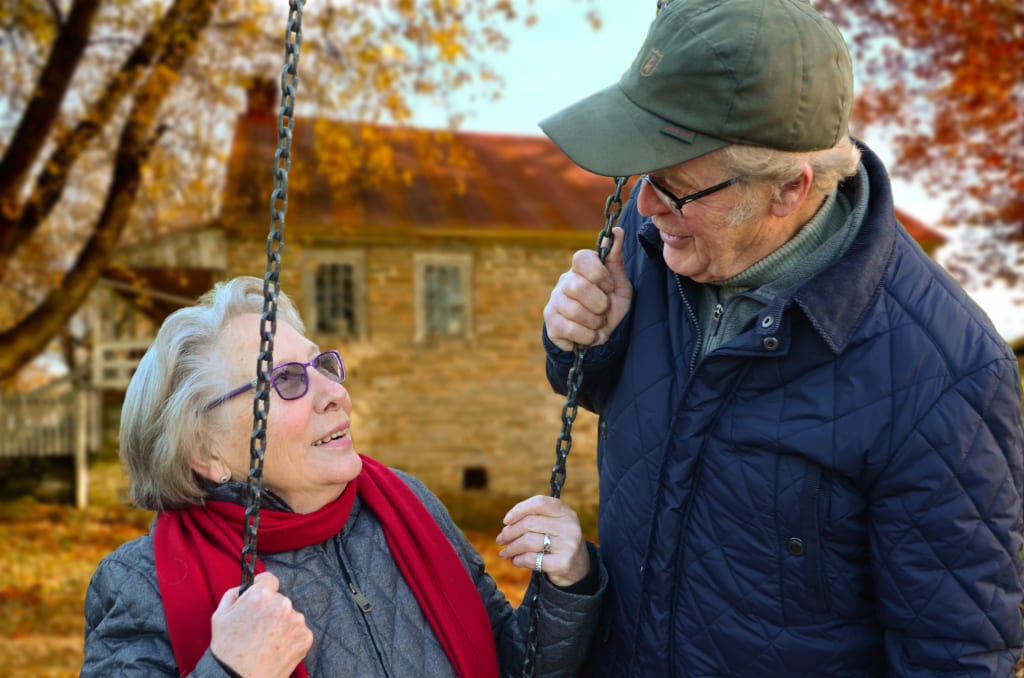The Fear Of Aging: Understanding The Menopause
menopause health

The menopause is a normal part of a woman’s aging process. Because of a decline in estrogen and progesterone production, menopause signals the end of a woman’s reproductive years. Menopause and the aging process that comes with it are natural, but many women worry and stress about them still.
The perceived loss of vitality and attractiveness after menopause is a common source of anxiety. Many middle-aged and older women report feeling social pressure to continue projecting an image of youth. It might be challenging to accept menopause because of the physical changes it can bring about, such as weight gain, wrinkles, and hair thinning. In addition, women may feel a loss of agency due to menopause because of the decline in their physical and emotional vitality.
Understanding Menopause
Menopause is a normal part of a woman’s life cycle that signals the end of her reproductive years. It’s a natural aspect of becoming older, and it usually hits between 45 and 55. The ovaries stop making eggs and estrogen and progesterone levels drop during menopause. Various physical and mental symptoms are associated with this hormone transition.
Hot flashes, nocturnal sweats, mood swings, vaginal dryness, and sleeplessness are all prevalent menopause symptoms. Different women may experience these symptoms more severely or for shorter duration. It’s worth noting that not all women experience these symptoms, and those who do may only feel them for a short time or for a long time.
Menopause is not without its long-term health hazards. Menopausal women are at a higher risk of developing health problems like osteoporosis, cardiovascular disease, and several forms of cancer. Women should discuss preventative measures for these diseases with their doctors.
Hormone therapy, non-hormonal drugs, and behavioral modifications are just some of the ways that menopause symptoms can be alleviated. You should discuss your symptoms and medical history with your doctor to determine which treatment options are most appropriate for you.
In general, menopause occurs as a normal and expected part of a woman’s aging process. While it can be a difficult period for some women, there are various options for alleviating symptoms and lowering health risks.

The Fear of Aging
You may feel anxious or fearful as menopause approaches because of your increasing age. Societal pressure to present an image of perpetual youth and vigor contributes to this widespread belief among modern women. You might be concerned about being less appealing to potential romantic partners or valued at work.
Keep in mind that becoming older is something that happens to everyone. Accepting the physical changes of menopause might be challenging, but it’s worthwhile to welcome the wisdom and experience that come with age. The wisdom and expertise you’ve acquired over the years is priceless; it’s something you should take pride in.
Keep in mind that menopause does not have to mean the end of your sexual appeal. Many women report an upsurge in sexual desire during and after menopause, and there are numerous strategies for doing so.
Finally, as you get older, it’s essential to focus on your mental and physical well-being. Examples of such measures include going to the gym regularly, eating right, and, if necessary, consulting a therapist. By prioritizing your own well-being, you may embrace the inevitable changes that come with age rather than dreading them.
Psychological Impact of Menopause
Menopause is the normal physiological transition from fertile to sterile female life. However, it is also a moment of profound emotional and mental change. Among the psychological effects of menopause are the following:
Feelings of anger, anxiety, and depression are just some of the mood changes that can occur with menopause. Hormonal fluctuations, namely estrogen, have been linked to these alterations. It’s crucial to consult a doctor if your mood swings are severely impacting your daily life.
Problems with Self-Perception can also affect how you feel about your body. Mood swings and self-esteem are common responses to changes in body composition, skin tone, and hair texture. Keep in mind that these alterations are natural and that you remain desirable and attractive despite them.
During menopause, many women experience a loss of identity as they transition from their reproductive years into the next stage of their lives. Especially if you have largely defined yourself as a mother or caretaker, this change can lead to a loss of identity and purpose. Trying out different activities can help you identify what truly brings you joy in life.
Problems with sex life are another side effect of menopause. Hormonal fluctuations are a potential source of vaginal dryness, decreased libido, and unpleasant sexual encounters. There are remedies for sexual problems, so it’s vital to discuss them with your doctor if you’re having them.
Keep in mind that these feelings are common and that menopause is a natural process that affects every woman. Thank you for reading.
About the Creator
Abby blasius
I am a passionate content creator with a strong focus on health and wellness. While my educational background lies in a Bachelor of Accounting and Finance, it is my innate desire to help people feel good about themselves in mind, body&soul






Comments
There are no comments for this story
Be the first to respond and start the conversation.